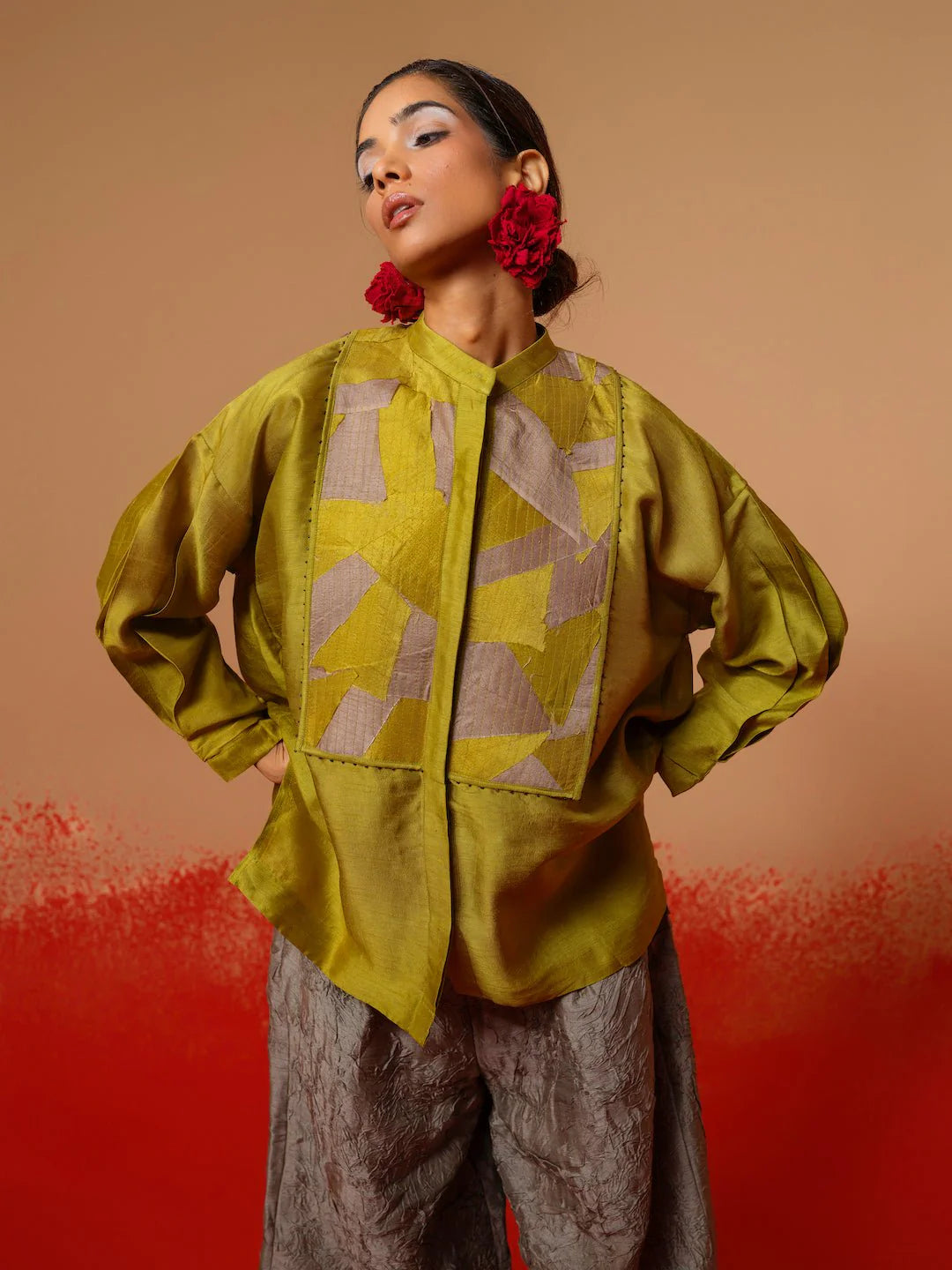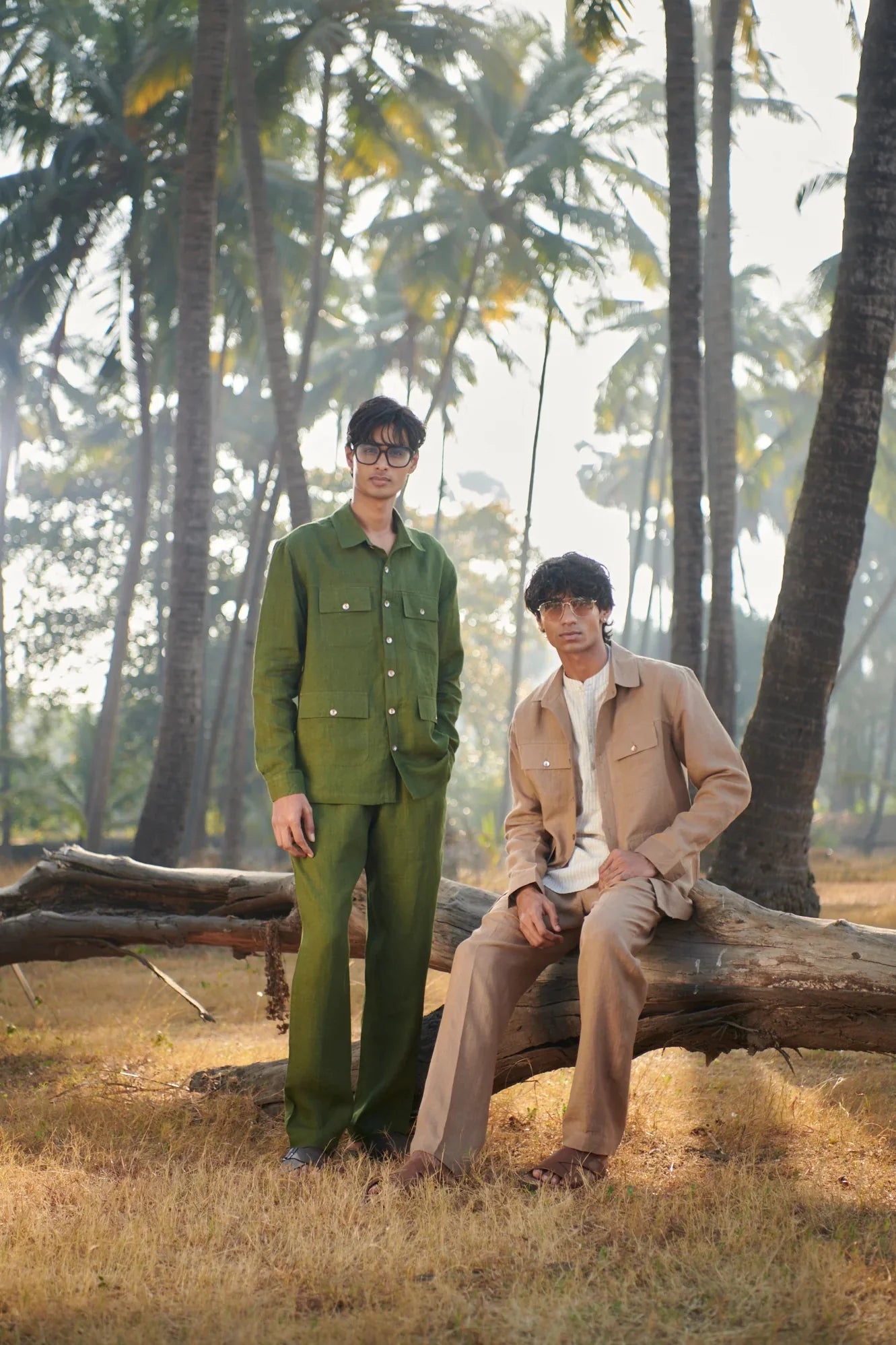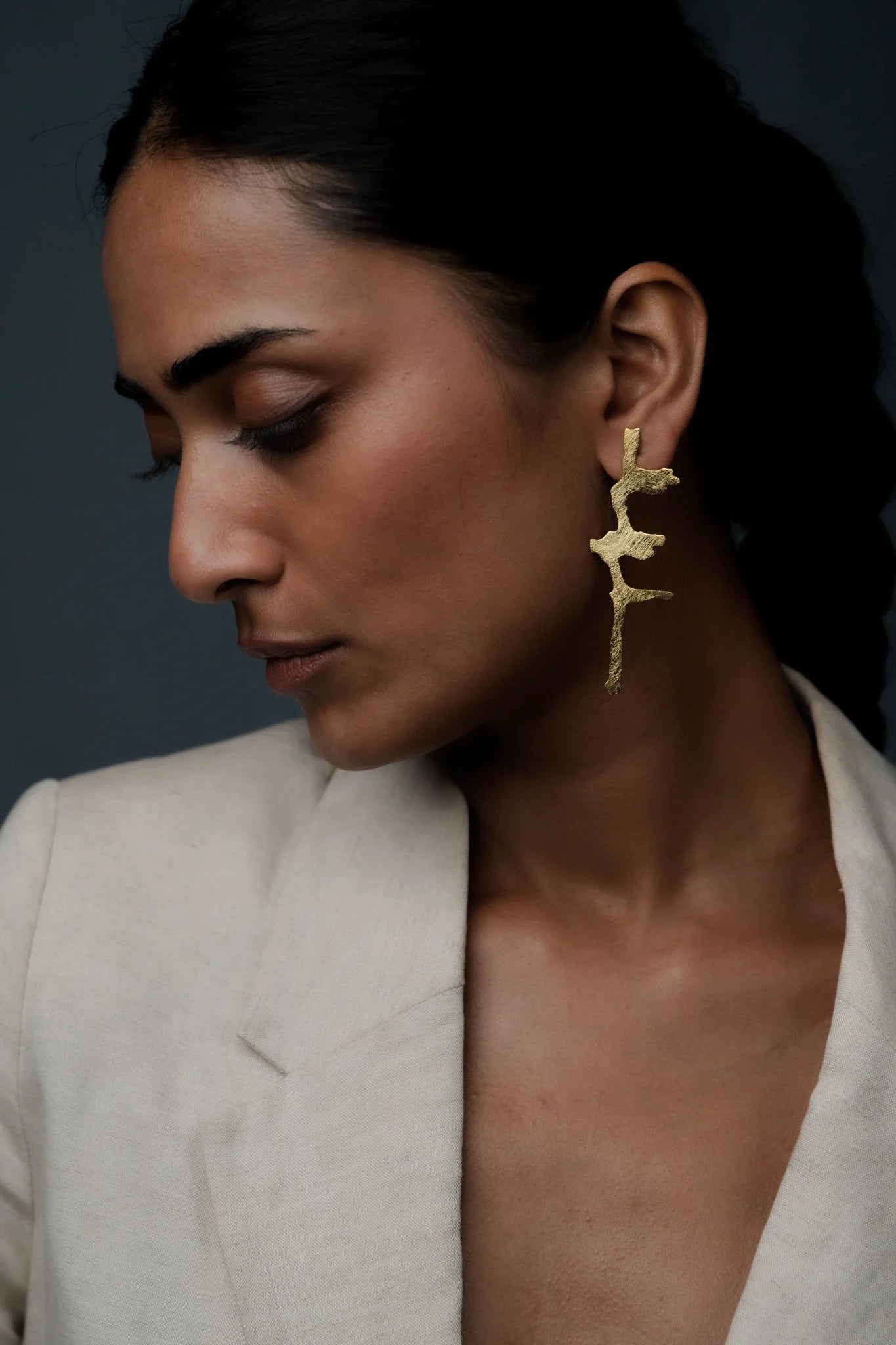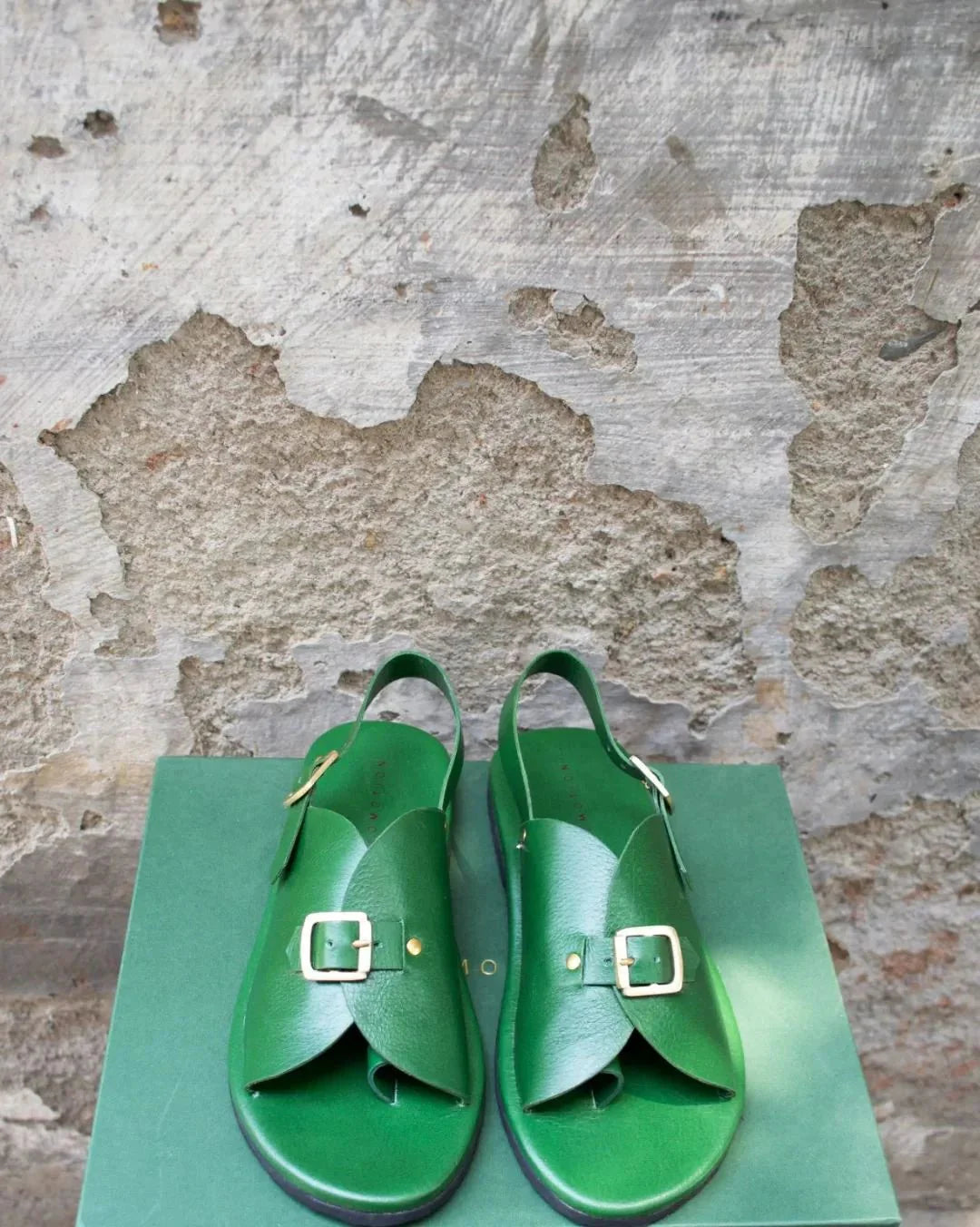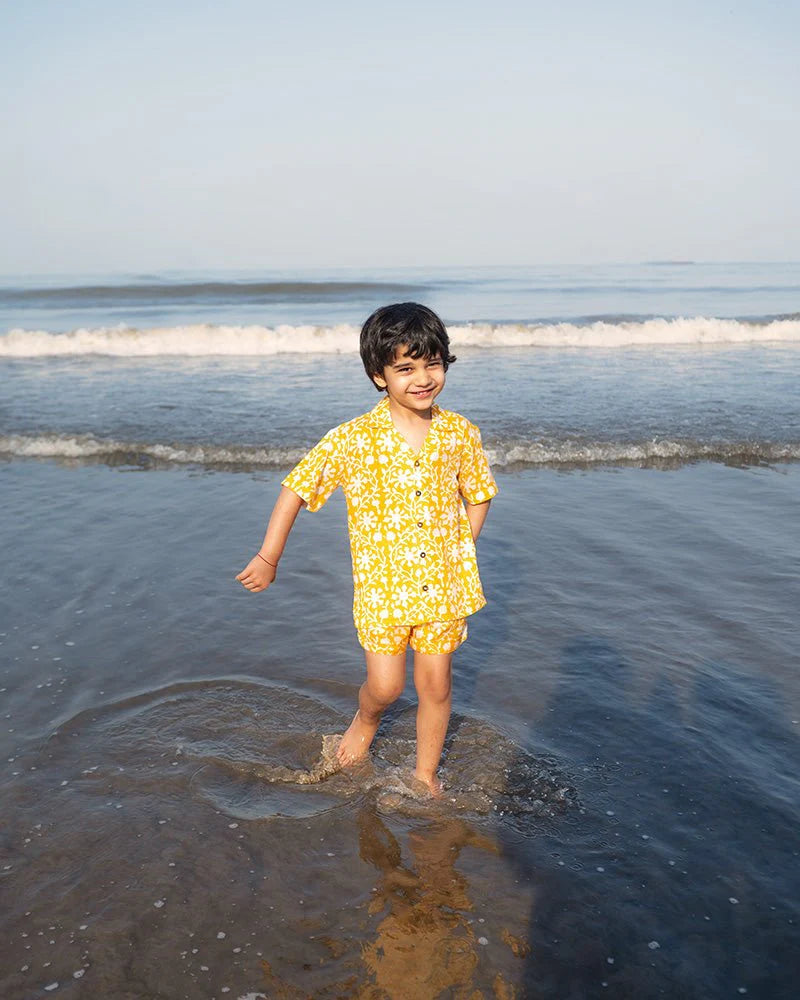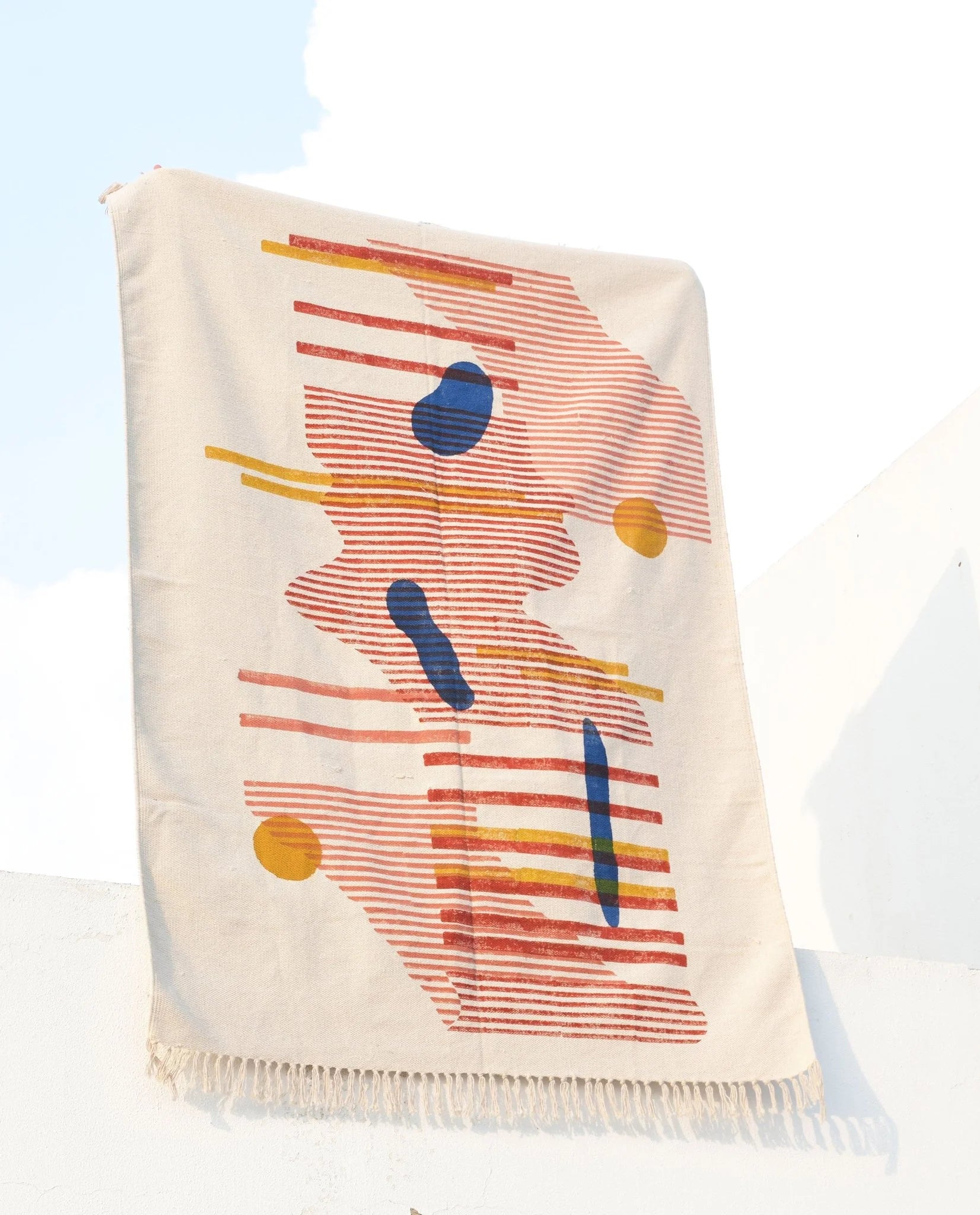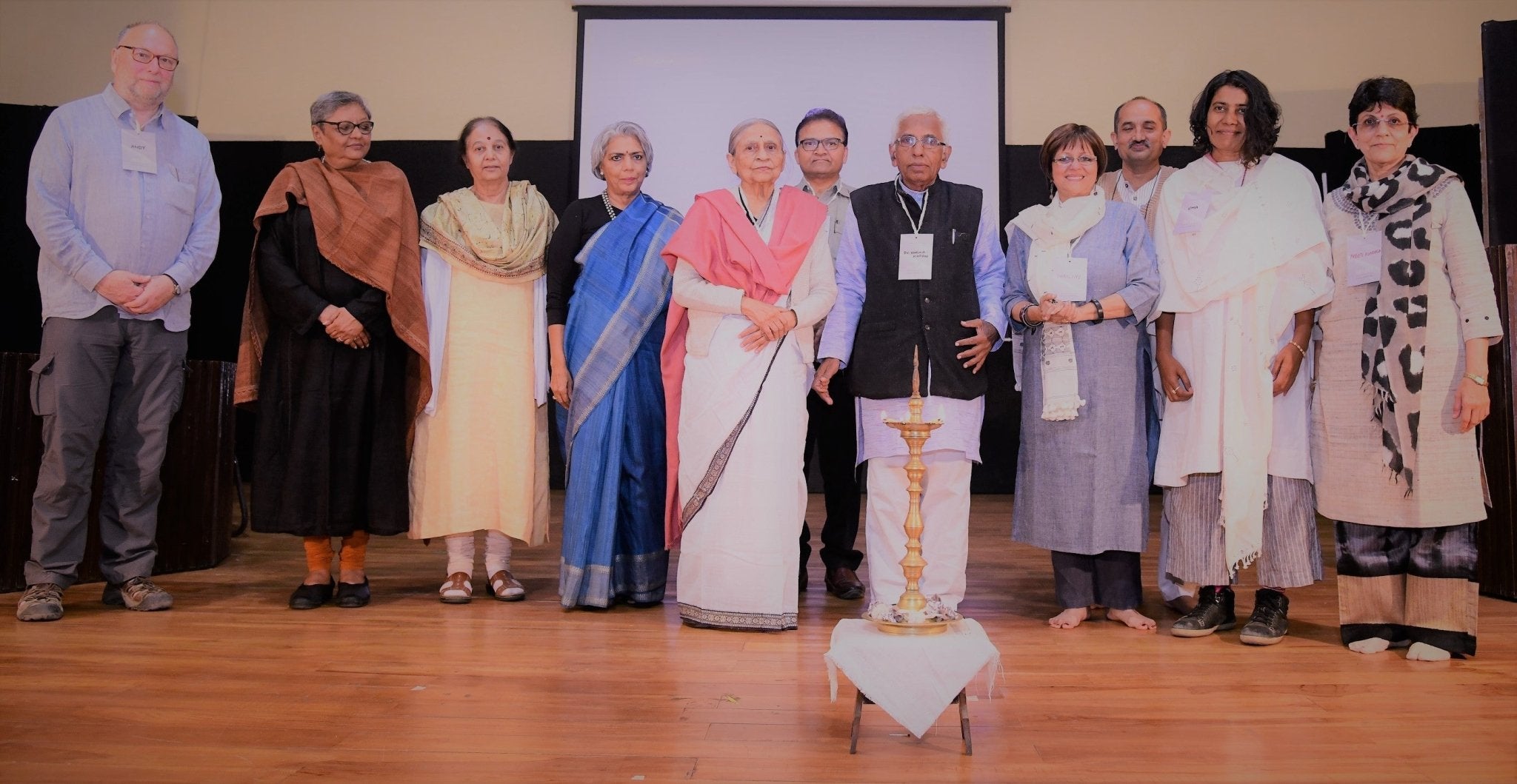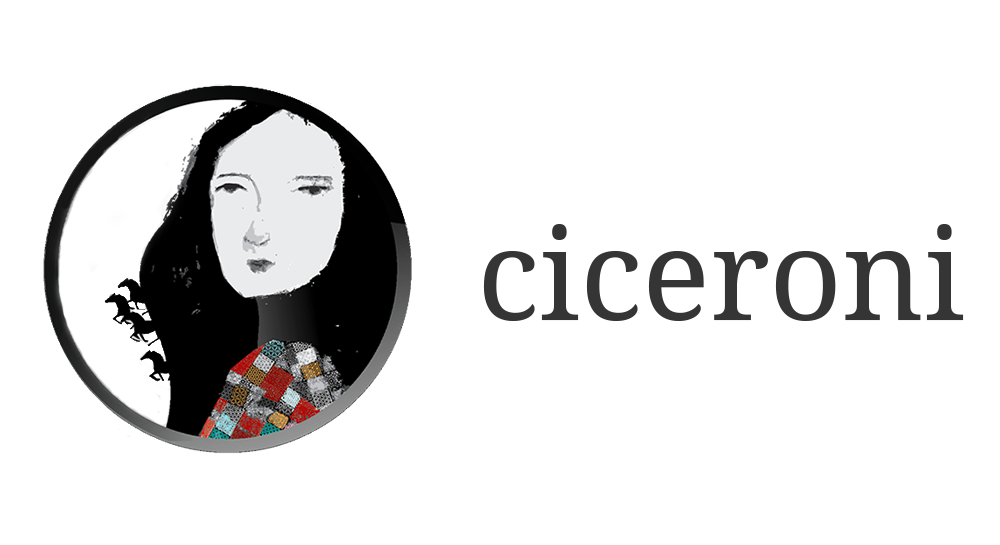In its second edition, the event comprised of workshops on techniques and craft forms that supported sustainability, key note address and panel discussions on topics ranging from cotton farming, fabric production, designing, marketing and ethics of supply chain.



Dr. Smt. Ela Bhatt inaugurated the event with keynote address on fabrics, clothing and sustainability followed by Uzramma’s session on cotton and its evolution through decades in producing fabrics. This legendary septuagenarian started Dastkar Andhra Trust in 1995 to provide research and marketing services to the cotton handloom industry of Andhra Pradesh, and natural dyeing training to artisan groups. Retiring from Dastkar Andhra in 2005, Uzramma founded the Decentralized Cotton Yarn Trust and the Malkha Marketing Trust, of which she is currently the Director.

While there is a huge ongoing debate among consumers, retailers and designers on why to shift from powerloom to handloom when the former is cheap, there is another dialogue that is ensuing in the textile designer fraternity. How does one protect handloom weaving and provide sustainability not just in terms of resources used but also as employment opportunity to artisans?
Sharing historical events and its impact on cotton farming and handloom weaving in India, Uzramma said “History records the fine Dhakai muslin and the chintz exported to Europe, but India’s real strength lay in the coarse cotton cloth woven by ordinary people for their own use. Mul fabric was made for the use of elites and thicker cotton was used for daily wear by commoners. To evoke the heydey of malmal and the revolutionary power of khadi, Malkha was created with a mission to present an evolved alternative to the industrial model of making cotton.”

Talking about the usage of modified BT cotton in India, Uzramma adds “Currently, India has 95% of looms in the world whereas rest 5% is in Pakistan and Bangladesh. Owing to the diversity in the indigenous variety of cotton and weaving techniques, India produces a wide variety of handloom textiles; a feat that no other country can boast of. Unfortunately, in the recent times, 65% of Indian cotton is of the American modified variety. American cotton struggles to survive in the soil and climate of India. Farmers are forced by economic pressures to grow this breed of cotton. Thus, starts another calamity, one of history’s largest socio-economic tragedy: the long thread of farmer suicides in the Indian sub-continent.”

Concurring with her views on agrarian issues of cotton cultivation, Dr. T Karunakaran, Secretary MSS-Dattapur and Director, Agrindus Institute said “Agriculture has to be made viable, profitable and respectable in current age for people to take it as a serious occupation. It is necessary for the market dynamics to evolve so that a man who spins doesn’t have to be dependent on mill-made textiles for his own consumption”.
Historically, Indian cotton textiles flourished peacefully employing millions in the various stages and making huge varieties. Tome Pires, a Portuguese traveller wrote in 1515 describing ships that came from Gujarat and the Coromandel coast as “worth eighty to ninety thousand cruzados, carrying cloth of thirty different sorts”. Exports are documented from India to the Roman Empire as early as in the first century BCE, so much that the Roman historian Pliny is said to have complained that India was draining Rome of her gold and to Egypt from the 9th century. Indian cotton fabrics clothed “everyone, from the Cape of Good Hope to China, man and woman…from head to foot” as Pyrard de Laval says in the early 17th century.
India’s textile exports today account for just 3% of world textile trade. With increase in powerlooms and cheaper fabric imitated from the western world, decreased population of artisans opting for working in handloom sector, low pay wages, handloom perceived and projected as luxury, will the handloom weaving survive ?
Deliberating at the event, other speakers included Mr. Kapil Shah, Managing Director, Jatan Trust, Mr. Chandrakant Patel, Secretary, Udyog Bharti Gondal, Dr. Sudarshan Iyengar Director, Gandhi Research Foundation and Former Vice Chancellor, Gujarat Vidyapeeth, Archana Shah, Founder- Bandhej, Uma Prajapati, Founder,-Upasana, Mr. Andy Rutherford, Founder- Fresh Eyes – People to People Travel, Mr. Nitin Pamnani, Co-Founder, iTokri, Sonal Baid, Founder- Aura Herbal & Sustainable Earth Foundation, who shared their insights on the production and supply chain ethics besides debating on the design and marketing aspects of garments.

While the conference evoked debates, dialogues and varied view points on incorporation of sustainable means starting from farm to fabric among the industry stalwarts and renowned academia, all other stake-holders including city’s home-grown sustainable designers, end consumers and youth who form an essential part of this dialogue were missing.
Are the conferences then meant to be for internal consumption among the academia and few renowned designers or do they need to be more inclusive for the sustainable movement to spread at grass root level? Maybe, it’s just the beginning and Ahmedabad, an erstwhile textile hub, will witness more such dialogues in future with better participation from all stakeholders.

